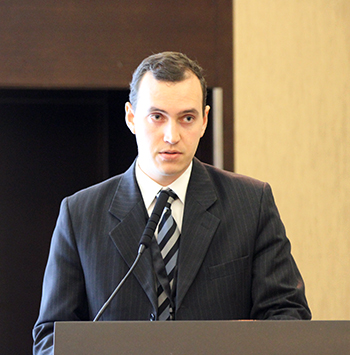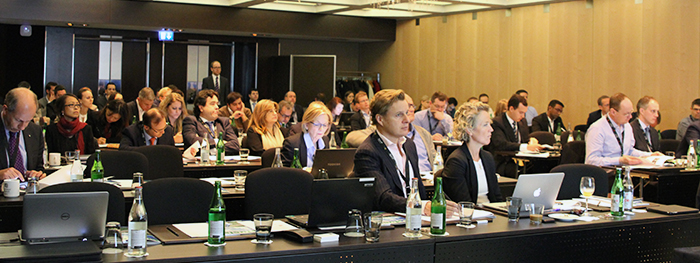Business leaders, strategy consultancies and policy makers gathered in Geneva for the 5th Annual EU Biofuels Seminar organized by Platts. In this year's event which took place in Geneva, practitioners in the industry discussed the latest policy, technological and market developments with direct impacts on the biofuels industry. Special emphasis was put on how to meet goals set out in major regions for renewables in transport, such as those adopted by the European Union.
UNCTAD was invited by Platts to the event in order to present its study on 2nd Generation Biofuel markets, comparing surveyed figures on deployed capacity for 2G fuel production with industry estimates, which appeared aligned. A total of about 1.4 billion litres of installed capacity for 2G ethanol existed in the world as of 2015. This generated discussions concerning the need for clearer policies at the European Level in order to increase the utilization of the installed capacity, a process which faces market challenges due to slow demand growth in European transport markets, as well as uncertainties arising from low oil prices.
A representative from one large Norwegian biorefinnery (Borregaard) mentioned that the primary aim of bioeconomy policies should be to convert low-value feedstock to high-value end products, not limiting itself to energy markets. The representative mentioned his impression that in practice policy signals often fall short of promoting such ideal routes of high-value creation, focusing instead on the conversion of high-value feedstocks (such as cereals) into lower-value-added end products such as thermal and liquid energy. A proposed intermediary step - also endosed by the European Commission representative - is to continue to promote the utilization of low-value feedstocks (such as municipal solid waste and agricultural residues) for meeting renewable energy goals.
 While discussing market conditions, industry leaders mentioned the need to reduce risks in four key areas of the bioenergy industry, namely quantities produced, quality, price and sustainability regulations. Representatives from various parts of the value chain offered their views on how to tackle those dimensions in the specific sector they operate. One of the suggestions was for the industry to work together with policymakers at the European level since the scale necessary for the efficient upscaling of novel markets such as cellulosic fuels require an European scale for learning curves to advance in this novel industry. Another suggestion involved stronger cooperation between bioeconomy industries, by means of better coordination between biomaterials and bioenergy sectors to dialogue with policymakers with harmonized positions.
While discussing market conditions, industry leaders mentioned the need to reduce risks in four key areas of the bioenergy industry, namely quantities produced, quality, price and sustainability regulations. Representatives from various parts of the value chain offered their views on how to tackle those dimensions in the specific sector they operate. One of the suggestions was for the industry to work together with policymakers at the European level since the scale necessary for the efficient upscaling of novel markets such as cellulosic fuels require an European scale for learning curves to advance in this novel industry. Another suggestion involved stronger cooperation between bioeconomy industries, by means of better coordination between biomaterials and bioenergy sectors to dialogue with policymakers with harmonized positions.
The impacts of low oil prices in the industry was also discussed at the Platts seminar. Together with high production costs, low oil prices have contributed to keep the share of renewable energy in EU transport at a relatively modest 5.94% (4.1% were biofuels) which is falling short of the EU's target of 10% for 2020. While there have been calls for an E20 blend across Europe, market data suggests that even meeting the current cap for conventional biofuels by 2020 (7%) is unlikely. The European Commission representative at the event discussed ideas and suggestions on how bioenergy policy in the continent could be adjusted to ensure European goals for renewable energy and decarbonization in transport are met. Two dimensions were specifically mentioned as being prone to adjustments, in special the level of support (especially concerning 2G biofuels) and which mechanisms to use in order for support to be provided.



